Homage to Tomàs Llorens
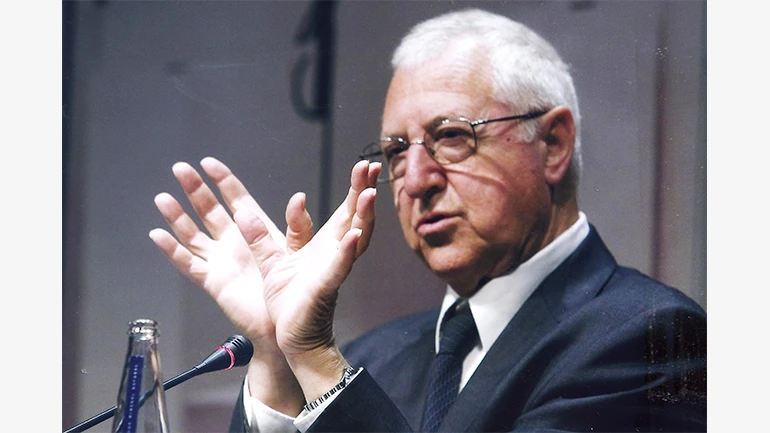
Held on 29 sep 2021
Tomàs Llorens (1936–2021), a key figure of art history and Spain’s museum landscape, passed away on 10 June this year in Dénia. His professional activity was decisive in founding the most salient modern art museums in Spain at the beginning of the democratic period.
Across a five-decade career, Llorens combined university lecturing with scientific research and cultural management, and from these three fronts turned his attentions to the persistence of realism in art’s avant-garde movements, the origins of modern art in the last third of the 19th century, the figure of sculptor Julio González, and aesthetic reflections on architecture. These same strands, which would form the subject of his teachings, publications and exhibitions, are the pivots upon which this homage turns.
Tomàs Llorens worked as a lecturer at the Universitat Politècnica de València (1969–1972), Portsmouth Polytechnic (1972–1984), the Polytechnic University of Barcelona (1978–1980), Universitat de Girona (1996–1998), Universitat de València (1998-1999) and Universitat d’Alacant (2000-2005), specialising in the areas of Aesthetics, Architectural Composition and Art History. He was also a contributor to and theoretical driving force behind Equipo Crónica, an historical artistic collective of critical pop-art made up of Rafael Solbes, Juan Antonio Toledo and Manolo Valdés and active between 1964 and 1981. Moreover, he curated, with Valeriano Bozal and many other contributors, the emblematic exhibition Spain, Artistic Avant-Garde and Social Reality, 1936–1976 for the 1976 Venice Biennale, in the wake of Franco’s death. In the 1980s and 1990s, Llorens was in charge of creating and directing museum centres that would shape art’s new ecosystem in democratic Spain, such as the Institut Valencià d’Art Modern (IVAM), where he worked as its founding director from 1986 to 1988, the Museo Reina Sofía, which he directed from 1988 to 1990 during its transition from art centre to national museum, and the Museo Nacional Thyssen-Bornemisza, where he occupied the position of head curator from 1991, one year before its opening, to 2005. Finally, of the vast number of temporary exhibition catalogues, mention must be made of the Julio González catalogue raisonné, a six-volume magnum opus he was working to finish in his final years.
This exemplary work resulted in his appointment, in 1998, as an academic at the San Fernando Royal Academy of Fine Arts and the publication of the collective volume Estudios de Historia del Arte en honor de Tomàs Llorens (Studies of Art History in Honour of Tomàs Llorens, Antonio Machado Libros, 2007).
This homage features a pre-eminent selection of interventions — both in-person and online – by figures linked to curatorship, art history, architecture and fine arts, all of which are representative of the professional and intellectual interests of Tomàs Llorens.
By order of intervention
Guillermo Solana, artistic director of Museo Nacional Thyssen-Bornemisza
Baronesa Carmen Thyssen-Bornemisza, vice president of the Museo Nacional Thyssen-Bornemisza’s Board of Trustees
Manuel Borja-Villel, director of Museo Reina Sofía
Nuria Enguita, director of Institut Valencià d’Art Modern (IVAM)
María Dolores Jiménez-Blanco, general director of Fine Arts, Spain’s Ministry of Culture and Sport
Valeriano Bozal, emeritus lecturer of Art History, Complutense University of Madrid
Maria Josep Balsach, lecturer of Contemporary Art, Universitat de Girona
Jaime Brihuega, emeritus professor of Art History, Complutense University of Madrid
Paloma Alarcó, head of Modern Painting Conservation, Museo Nacional Thyssen-Bornemisza
Kosme de Barañano, lecturer of Art History, Universitat Miguel Hernández d’Elx
Alex Katz, artist
María Teresa Ocaña, art historian and former director of Museu Picasso and Museu Nacional d'Art de Catalunya (MNAC), Barcelona
Francesc Torres, artist
Delfín Rodríguez, lecturer of Art History, Complutense University of Madrid
José Francisco Yvars, art critic and historian, and former director of Institut Valencià d'Art Modern (IVAM)
Participants
Participants
Más actividades
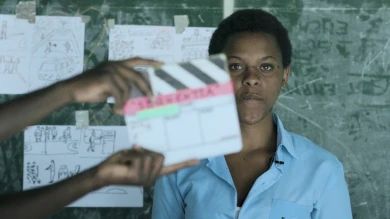
Christian Nyampeta and the École du soir
13, 14, 15 NOV, 11, 12, 13 DIC 2025
Christian Nyampeta is a Rwandan artist, musician and film-maker whose work encompasses pedagogies and community forms of knowledge production and transmission. His Ècole du soir (Evening School) is an art project conceived as a mobile space of collective learning and is named in homage to Ousmane Sembène (1923–2007), a pioneer of African cinema who defined his films as “evening classes” for the people, a medium of education and emancipation through culture.
This block is made up of three double sessions: the video work of Christian Nyampeta, the films of École du soir and one of Ousmane Sèmbene’s feature-length films. Nyampeta will introduce all three first sessions.
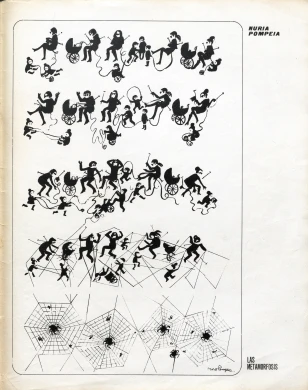
Crossed Vignettes
Friday, 21 November 2025 – Check programme
The Crossed Vignettes conference analyses the authorship of comics created by women from an intergenerational perspective and draws from the Museo Reina Sofía Collections. Across different round-table discussions, the programme features the participation of illustrators Marika, Carla Berrocal, Laura Pérez Vernetti and Bea Lema and researchers Viviane Alary, Virginie Giuliana and Elisa McCausland.
The aim of the encounter is twofold: to explore in greater depth the different forms in which women comic book artists have contributed to developing a counterculture; namely, the appearance of ruptures, reformulations and new genres within the ninth art. And to set up a dialogue which ignites an exploration of genealogies linking different generations of artists.
Moreover, the activity is put forward as a continuation to the exhibition Young Ladies the World Over, Unite! Women Adult Comic Book Writers (1967–1993) and the First International Conference on Feminist Comic Book Genealogies, held in April 2024 at the Complutense University of Madrid.
In redefining the visual narratives of the comic book and questioning gender stereotypes in a male-dominated world, women comic book writers and artists have impelled greater visibility and a more prominent role for women in this sphere. The study of intergenerational dialogue between female artists past and present enables an analysis of the way in which these voices reinterpret and carry the legacy of their predecessors, contributing new perspectives, forms of artistic expression and a gender-based hybridisation which enhances the world of comics.
The conference, organised jointly by the Museo Reina Sofía and Université Clermont Auvergne/CELIS (UR4280), is the outcome of the following projects: The Spanish Artistic Canon. Between Critical Literature and Popular Culture: Propaganda, Debates, Advertising (1959–1992), Casa de Velázquez (CALC); Horizon Europa COST Actions iCOn-MICs (Comics and Graphic Novels from the Iberian Cultural Area); and COS-MICs (Comics and Sciences).
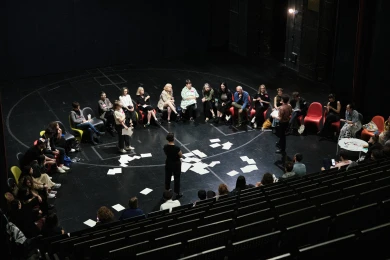
UP/ROOTING
11, 12, 13, 14, 15, 16 NOV 2025
Museo Reina Sofía and MACBA Museu d'Art Contemporani de Barcelona (MACBA) invite applications for the 2025 iteration of the School of Common Knowledge, which will take place from November 11th to 16th in Madrid and Barcelona.
The School of Common Knowledge (SCK) draws on the network, knowledge and experience of L’Internationale, a confederation of museums, art organizations and universities that strives to reimagine and practice internationalism, solidarity and communality within the cultural field. This year, the SCK program focuses on the contested and dynamic notions of rooting and uprooting in the framework of present —colonial, migrant, situated, and ecological— complexities.
Building on the legacy of the Glossary of Common Knowledge and the current European program Museum of the Commons, the SCK invites participants to reflect on the power of language to shape our understanding of art and society through a co-learning methodology. Its ambition is to be both nomadic and situated, looking at specific cultural and geopolitical situations while exploring their relations and interdependencies with the rest of the world.
In the current context fraught with war and genocide, the criminalization of migration and hyper-identitarianism, concepts such as un/belonging become unstable and in need of collective rethinking:
How can we reframe the sense and practice of belonging away from reductive nationalist paradigms or the violence of displacement? How to critically hold the entanglement of the colonial routes and the cultural roots we are part of? What do we do with the toxic legacies we inherit? And with the emancipatory genealogies and practices that we choose to align with? Can a renewed practice of belonging and coalition-making through affinity be part of a process of dis/identification? What geographies —cultural, artistic, political— do these practices of de/centering, up/rooting, un/belonging and dis/alignment designate?
Departing from these questions, the program consists of a series of visits to situated initiatives (including Museo Situado, Paisanaje and MACBA's Kitchen, to name a few), engagements with the exhibitions and projects on view (Project a Black Planet: The Art and Culture from Panafrica), a keynote lecture by Stefano Harney and Fred Moten, as well as daily reading and discussion gatherings, editorial harvest sessions, and conviviality moments.
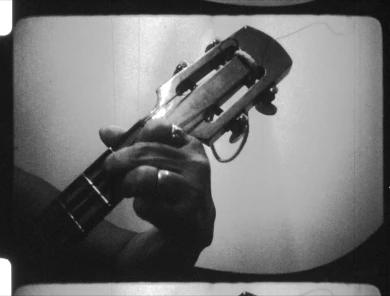
The Joaquim Jordà Residencies 2025
Friday, 7 November 2025 - 7pm
In this activity, the recipients of the 2024–2025 Joaquim Jordà Residencies call, María Aparicio (Argentina, 1992) and Andrés Jurado (Colombia, 1980), present respective projects related to their body of work in an open session in which to discover the creative interests of two of the most up-and-coming independent film-makers in Latin America today.
María Aparicio presents the working process behind her film De sol a sol (From Sun to Sun), along with a brief journey through the films prior to this project and her filmic searches in recent years. Aparicio synthesises the storyline of De sol a sol from the silhouettes of a group of men who appear between the stalks of a reedbed. Their knives glisten as the sun hits them, flashing and disappearing with their hand movements. Apprentices split the canes using no method; seasoned workers cut with skill. They are workers from a sugar mill in northern Argentina and are watched by Juan Bialet Massé, accompanied by Rosich, assistant and photographer. It is Argentina in 1904 and he is carrying out a mission assigned to him by his country’s government: to travel the Argentinian provinces, reporting on the state of the working classes.
Andrés Jurado, for his part, will look over his own work and the work of the La Vulcanizadora lab in this session. He will also open the archive stemming from the research process in the project Tonada, a journey through the succession of peace agreement betrayals in the history of Colombia. From the colonial era, understood in tumultuous terms, as a hurricane that keeps swirling, to the present day he traces the stories of people like Tacurrumbí, Benkos Biohó, Bateman and the many women and men who were betrayed by governments and oppressors. Tonada seeks to build a sound and film dialogue between the guerrilla disarmament of 1953 and the period following the peace agreement of 2016, invoking these and other events and confronting traumas of betrayal through a film composition devised to be sung. But what is sung? Some of these songs are heard and voices are shared in this presentation.
The Joaquim Jordà Residences programme for film-makers and artists was set in motion by the Museo Reina Sofía in 2022. The initiative comprises a grant for writing a film project rooted in experimentation and essay, as well as two subsequent residencies in FIDMarseille and Doclisboa, international film festivals devoted to exploring non-fictional film and new forms of audiovisual expression.
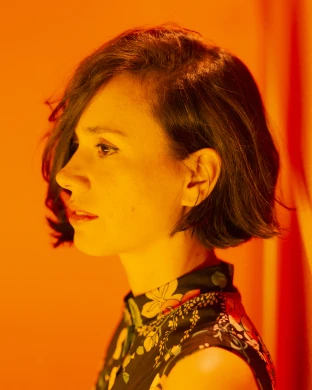
Ylia and Marta Pang
Thursday, 6 November - 8pm
The encounter between Spanish DJ and producer Ylia and visual artist Marta Pang is presented in the form of a premiere in the Museo Reina Sofía. Both artists converge from divergent trajectories to give form to a new project conceived specifically for this series, which aims to create new stage projects by setting out from the friction between artists and dialogue between disciplines.
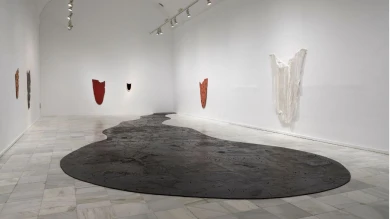
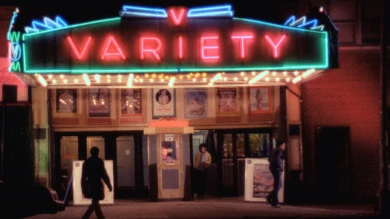
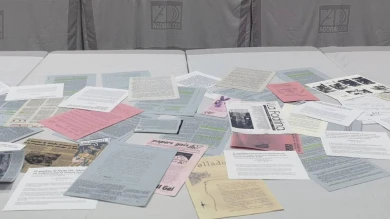
![Miguel Brieva, ilustración de la novela infantil Manuela y los Cakirukos (Reservoir Books, 2022) [izquierda] y Cibeles no conduzcas, 2023 [derecha]. Cortesía del artista](https://recursos.museoreinasofia.es/styles/small_landscape/public/Actividades/ecologias_del_deseo_utopico.jpg.webp)
![Ángel Alonso, Charbon [Carbón], 1964. Museo Reina Sofía](https://recursos.museoreinasofia.es/styles/small_landscape/public/Actividades/perspectivas_ecoambientales.jpg.webp)